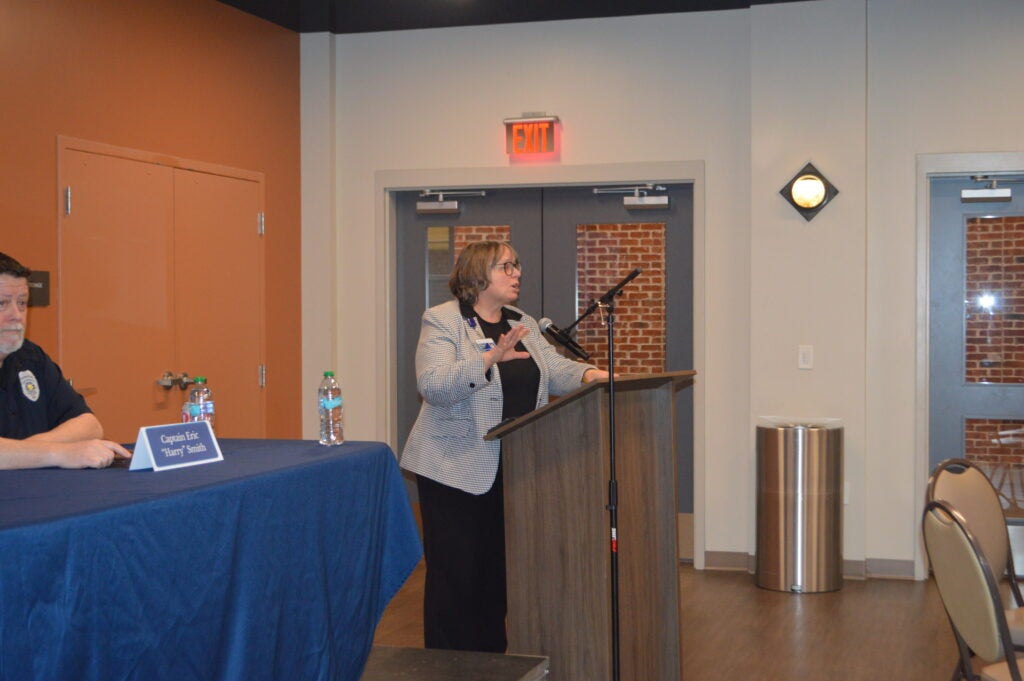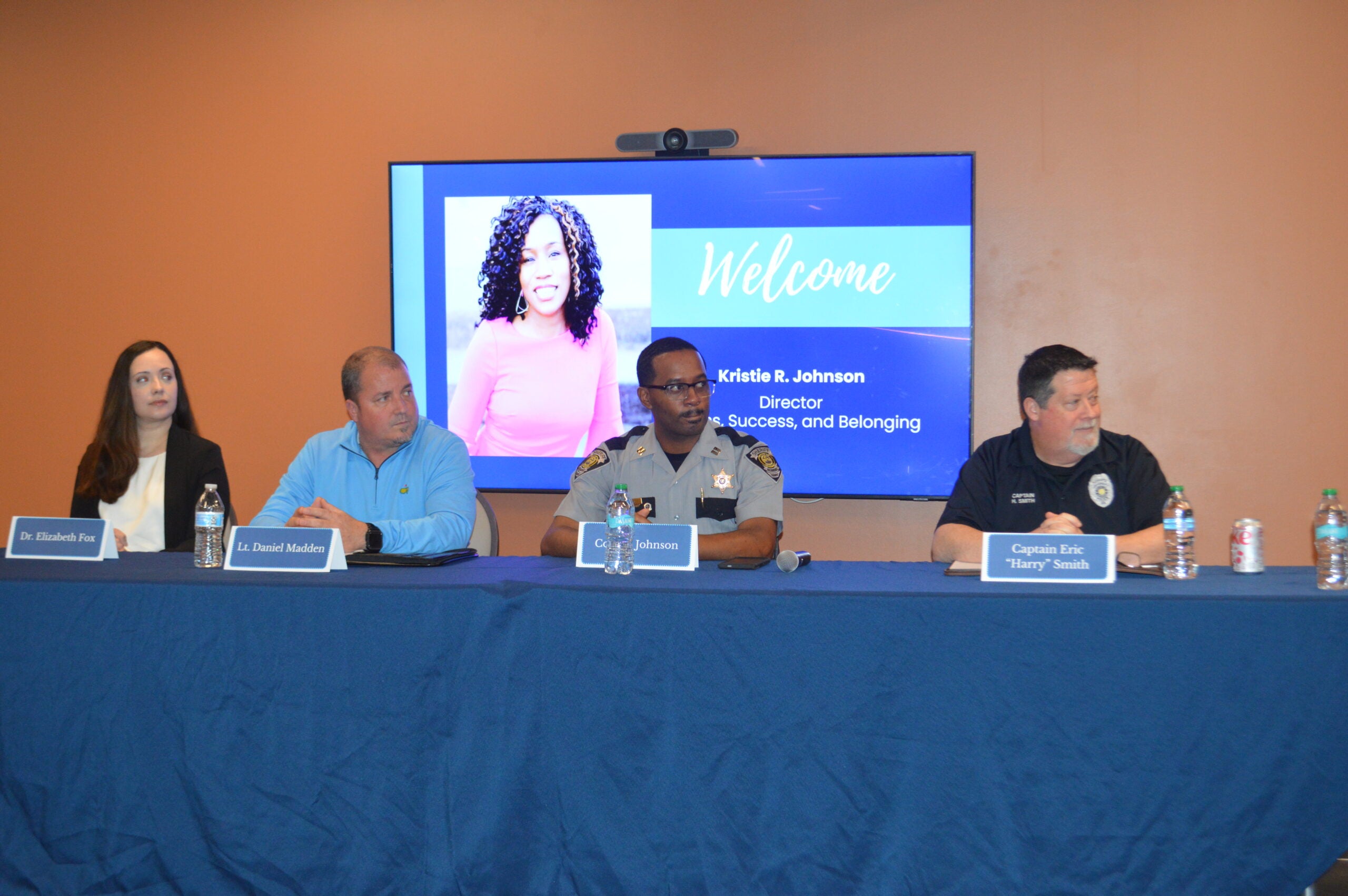Augusta University hosted an insightful panel discussion on gun violence on Feb. 27, led by experts who broke down trends in the Augusta area as well as prevention and causes.
Moderated by Dr. Kim Davies, a professor with a large interest in sociology and criminology and dean of the Pamplin College of Arts, Humanities and Social Sciences, the event also featured the voices of Captain Eric Smith with the Augusta University Police Department, Captain Omar Rouse with the Richmond County Sheriff’s Office, Lt. Daniel Madden with the Richmond County Sheriff’s Office and Dr. Elizabeth Fox with the Medical College of Georgia’s Trauma/Critical Care Department.
This was part of an ongoing lecture series by the university.

Grim numbers
The panel revealed some alarming statistics about gun violence, including that the state of Georgia had the eighth highest rate of gun homicide in the nation as of 2022; that same year, firearms were the leading cause of death in Georgia for children under 17 years old.
Further, panelists revealed that an average of 628 people in Georgia die at the hands of a firearm each year, and Black individuals are six times more likely to die in gun homicides than White individuals.
Gun theft, parental oversight and desensitization: causes and prevention
Cap. Rouse was critical of the seeming lack of communication between parents and their children, sometimes leading to gun concerns due to negligence.
“The main reason some of these kids have guns, I’ll be honest with you, [is] the parents,” he said. “Parents are not watching their kids, not paying attention to what their kids are doing. Not watching who they hang with.”
He also mentioned a lack of gun security in homes where children are present, suggesting that gun owners invest in safes and gun locks.
He added that carrying a gun without a holster is “one of the most dangerous things you can do.”
Cap. Smith argued that a hard-to-contain issue is the spread of firearms illegally.
“When we talk about gun violence in the community, we talk about how many guns are out there and how easy and accessible [they are], and concerns about how guns get into the wrong hands,” said Cap. Smith.
It was noted that many guns are stolen from unlocked cars. Cap. Smith shared that a study he did on car break-ins on AU’s campus over the course of five years revealed that over 80% of cars that were broken into were left unlocked and showed no signs of forced entry.
Dr. Fox talked about a growing culture of desensitization around gun mishandling and injury.
“People know somebody who was shot. People know somebody who has a gun. People know somebody who had a gun stolen,” she said. “It’s commonplace, and so it’s not seen as scary.”
What we can do as a community now or if you’re a gun owner, the main thing is to honor our kids, make sure our guns are stored how they should be,” said Lt. Madden.









